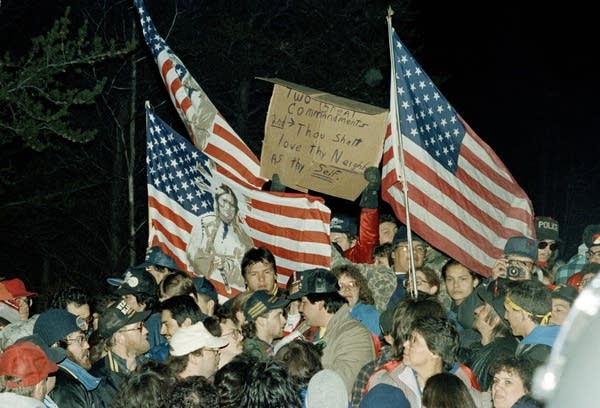The fight for Native fishing rights in Minn., Wis.

In this May 1989 photo, protesters and supporters of the Chippewa Indians' spearfishing activities gather in Wisconsin at Butternut Lake.
Allen Fredrickson | AP 1989
Go Deeper.
Create an account or log in to save stories.
Like this?
Thanks for liking this story! We have added it to a list of your favorite stories.


